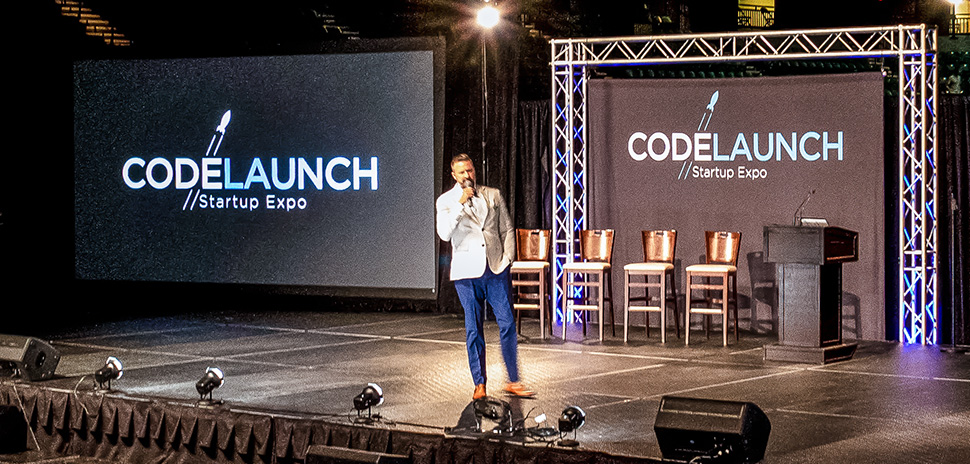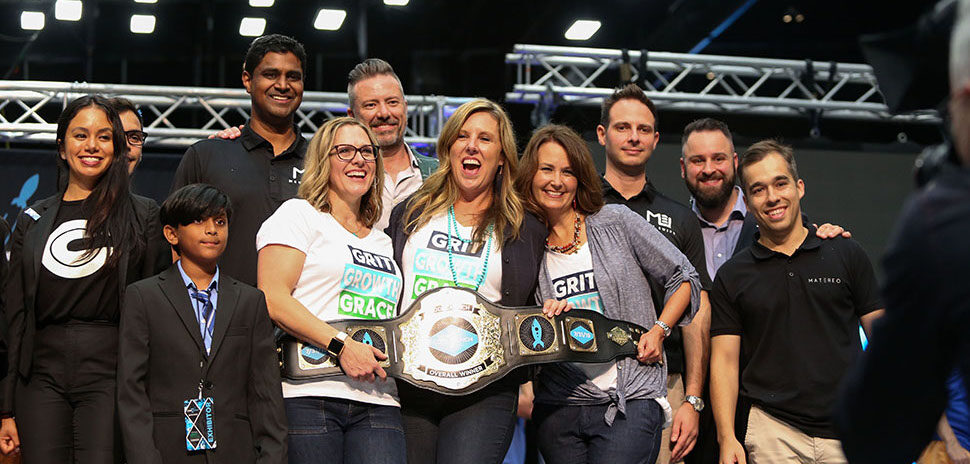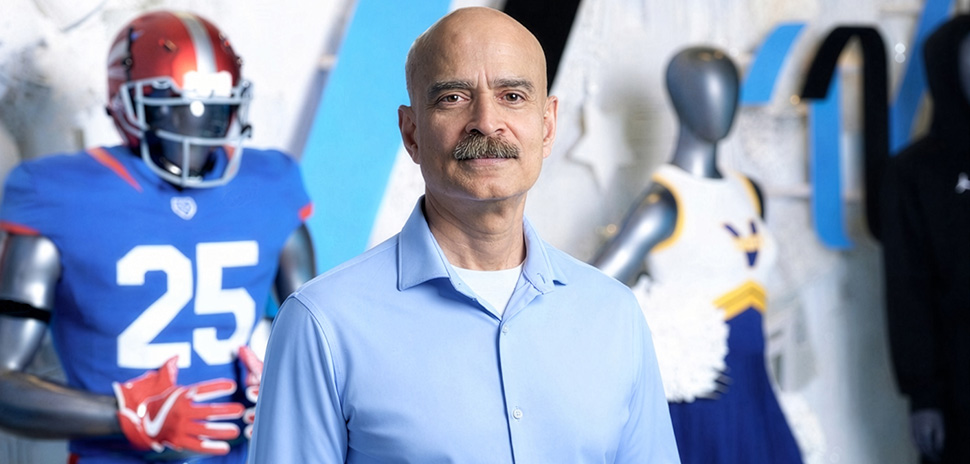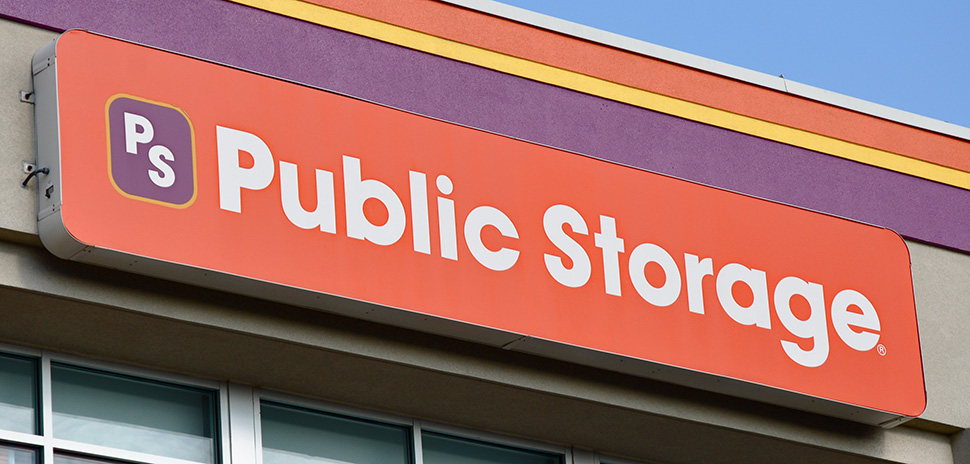A child development app and online marketplace for countertop remnants claimed the grand prizes at the 6th annual CodeLaunch Wednesday in Frisco.
Both of the winning finalists received $50,000 in seed services and will have their startup be the focus of a three-day hackathon.
Code Authority, a custom software company, and Improving, an IT services firm, each awarded one winner out of the six finalists who presented in the startup pitch event. Code Authority chose Frisco-based KidStrong to win its award while CountertopSmart from Austin won Improving’s award.
Both of the winners received $33,500 in seed funding and services and will have their startup be the focus of a three-day hackathon by an expert team of architects, designers, and coders.
“We’re trying to scour the nation and the world and find really great people with really great opportunities and then surround them with a family and network of fundamentally important service providers that are key to any early stage startup,” Code Authority founder and CodeLaunch creator Jason W. Taylor said. “We’re trying to manufacture really well-structured startups that are ready to make it into downstream accelerators and incubators.”
Here’s a look at the startups participating in Wednesday’s CodeLaunch event:
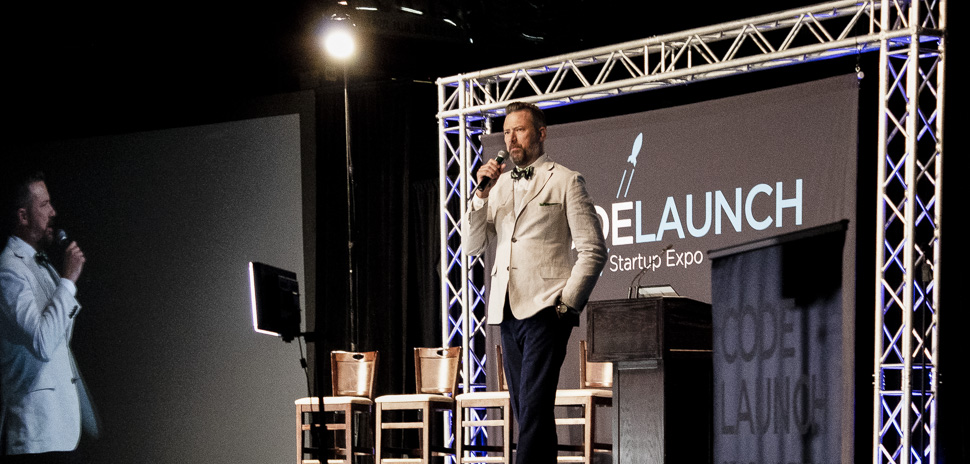
Jason W. Taylor, president of Code Authority, kicked off the evening.
KIDSTRONG
“I am strong! I am brave! I can do this!”
That’s the message Matt and Megin Sharp of KidStrong teach the tiniest members of their program to live and believe each day.
KidStrong, the CodeLaunch 2018 winner, is a comprehensive child development program that focuses on strengthening the athletic ability, character, and mental development of children. It also took home the awards for Most Creative Idea and Audience Favorite.
The program has two physical locations, one in Frisco, Texas and another in Lexington, Kentucky, where professional coaches teach the KidStrong curriculum.
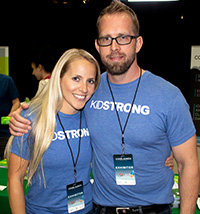
Matt and Megin Sharp of KidStrong
“Every class is lead by a professional and the curriculum is developed by professionals and we are hyper-focused on innovation,” KidStrong co-founder Matt Sharp said. “So, for us, that is increasing the access that we have to the curriculum and leveraging technology to make it as engaging as possible.”
Helping kids become stronger beyond the two physical KidStrong locations has been the startup’s major constraint. That’s why it came to CodeLaunch, to get a shot at developing KidStrong online.
“KidStrong online is a monthly subscription that’s going to allow parents all over the world access to our curriculum,” said Megin Sharp, KidStrong co-founder. “The community of KidStrong online is going to offer the world’s largest community for parents and experts.”
“We truly believe that just five minutes a day from a professional coach is going to have a major impact on a child’s life.”
Megin Sharp
The Frisco-based child development program began four months ago after the Sharps packed up their three children to move to Frisco two weeks after visiting for the first time.
“It’s an amazing town, there’s a lot of energy and for what we do this is basically like being in the Silicon Valley,” Matt said. “I think there are more kids in North Dallas than in some states, the parents care, there’s a lot of really smart people moving into town so all these things made us want to be here.”
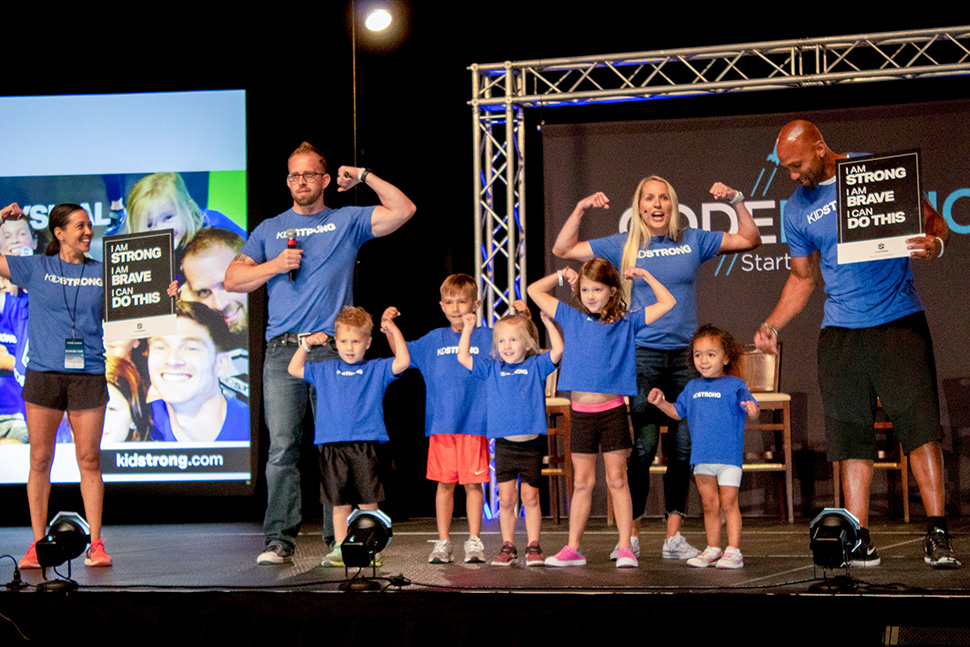
For the Sharps, the idea for KidStrong came to them when they were looking for a development program for their 15-month-old daughter, Ella. Their combined backgrounds in physical education and tech startups helped build what KidStrong is today.
Now, KidStrong will continue to create and share curriculum that changes the way every child develops physically and mentally.
“We truly believe that just five minutes a day from a professional coach is going to have a major impact on a child’s life,” Megin said.
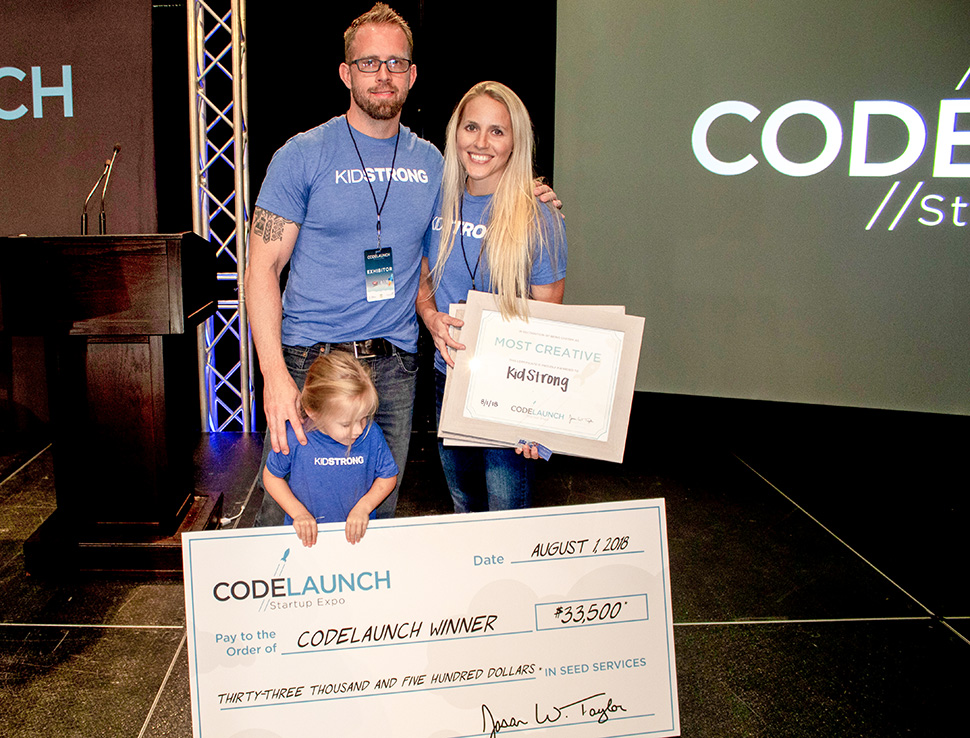
KidStrong took home the award for Most Creative Idea, Audience Favorite and CodeLaunch Winner.
COUNTERTOPSMART
Traditionally, countertops are sold in full slab quantities, but what happens to the remaining remnants that aren’t used? Remnant pieces typically end up in a countertop fabricator’s remnant yard, a site full of unused portions of full slabs.

CountertopSmart CEO and co-founder Zach House
Zach House, CEO, and co-founder of CountertopSmart, the Improving 2018 winner at CodeLaunch, identified several problems with that current standard operation, so he helped create the Austin-based startup to be an online marketplace that connects users to a little-known secondary market of countertop remnants.
House, who owned and operated a kitchen and bath showroom in Austin, identified a problem: Fabricators cannot effectively inventory, market, and sell their remnants, so CountertopSmart helps fabricators do just that.
It also saves customers time and 60-80 percent cost savings by connecting them to more stone options outside of the generic inventories often offered at big box stores.
“There is something to say about taking a forgotten industry, bringing it into the present, and leading it into the future.”
Zach House
“Most customers outside of the construction trades don’t even know that remnants exist. Even if you do know, it takes a lot of time to find them,” House said.
For every one piece of a remnant a fabricator sells, they create five new remnant pieces, which is leading to severe overcrowding for fabricators’ yards, according to House. Fabricators pay thousands of dollars to have remnants hauled off to dumpsters.
“That’s material that’s headed to the landfill when it should be contributed to their bottom line,” he said.
Currently, CountertopSmart has 1,300 searchable remnants and more than 180 user accounts leading to a gross revenue of $24,000.
With its aggregated customer base and online marketplace, CountertopSmart can help companies rapidly scale in the countertop industry, House said.
“AI, VR, blockchain. This is cool tech. Everyone wants a part of it. There is something to say about taking a forgotten industry, bringing it into the present, and leading it into the future,” he said.
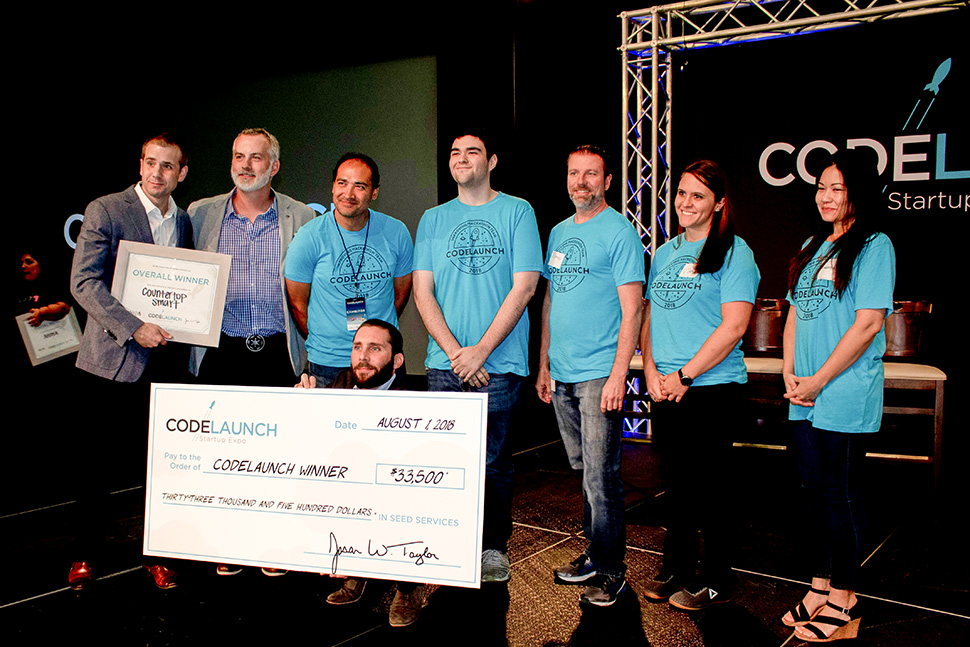
CodeLaunch’s overall winner, Countertop Smart
ANONA
Imagine a safe place online where a woman can choose to anonymously ask a question, but publicly answer one. That place is Anona.
Founder and sales producer May Kynaston created the semi-anonymous app after seeing women overshare on social media, but get bullied on completely anonymous platforms.
“Anona is the perfect hybrid, it combines user accountability with anonymity to create meaningful interaction.”
May Kynaston
“Women are craving authenticity, they want to feel like they aren’t alone, but they also need to know that they’re safe,” Kynaston said.
The idea for the Utah-based startup began when Kynaston created a Facebook group called Wives Anonymous to act as this space for women to ask their anonymous questions. Now, the group is considered one of Facebook’s most successful groups across the platform and has grown too big to support the safety needs of the 15,000 women who are using it.
That’s where the app comes in. Kynaston has seen the other anonymous apps that have come and gone in the past, but Anona is different. It won the Most Social Impact award at CodeLaunch for it’s mission to create a safe place for women to share with and help other women.
“Anona is the perfect hybrid, it combines user accountability with anonymity to create meaningful interaction,” Kynaston said. “The questions are anonymous, but the responses are not. I like to call it semi-anonymous and nobody else is doing it.”
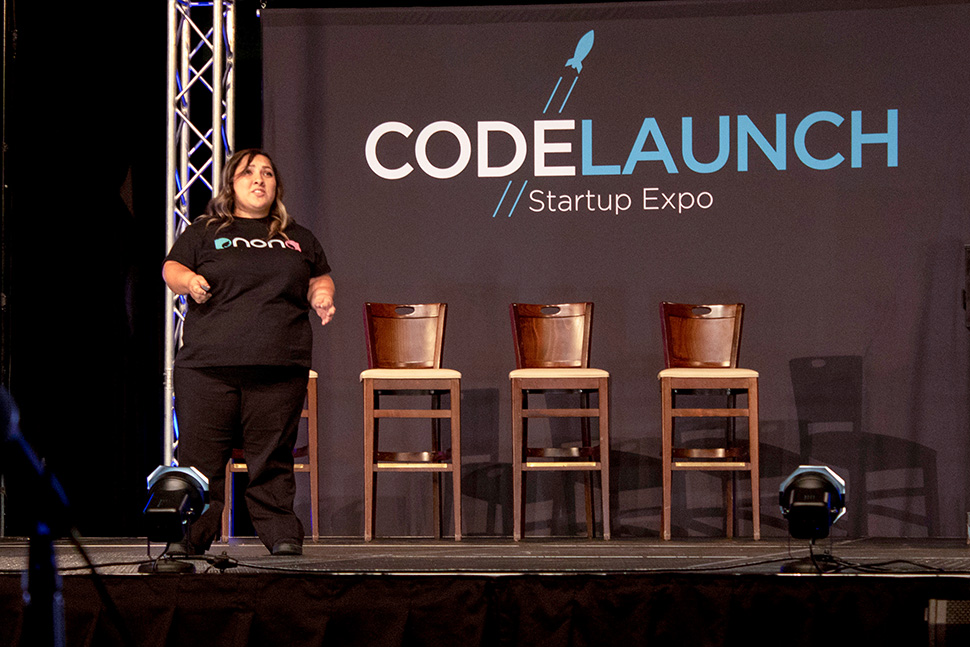
Mary Kinston of Anona
SONIMARK
Every time a song is leaked on the internet, the artist and all those involved in the music process experience a huge loss of money, content, and art.
Sonimark CEO Hal Fitzgerald wants to fix this. As someone who has been involved in producing audio in the music industry for 25 years, he is very familiar with having a song he worked on be leaked to the public.
“Sonimark is the first comprehensive solution dedicated to securing the entire music production process.”
Hal Fitzgerald
“Sonimark is the first comprehensive solution dedicated to securing the entire music production process,” Fitzgerald said. “It is a patent-pending, secure ecosystem.”
By providing traceability and deterrence, secure storage, and artist collaboration for the user, Lewisville-based Sonimark is the first secure software that makes sure songs are no longer leaked.
“Sonimark was created by industry insiders for the music industry,” Fitzgerald said. “It’s my connections to the top producers, top engineers, top label executives, that’s what gives us the advantage.”
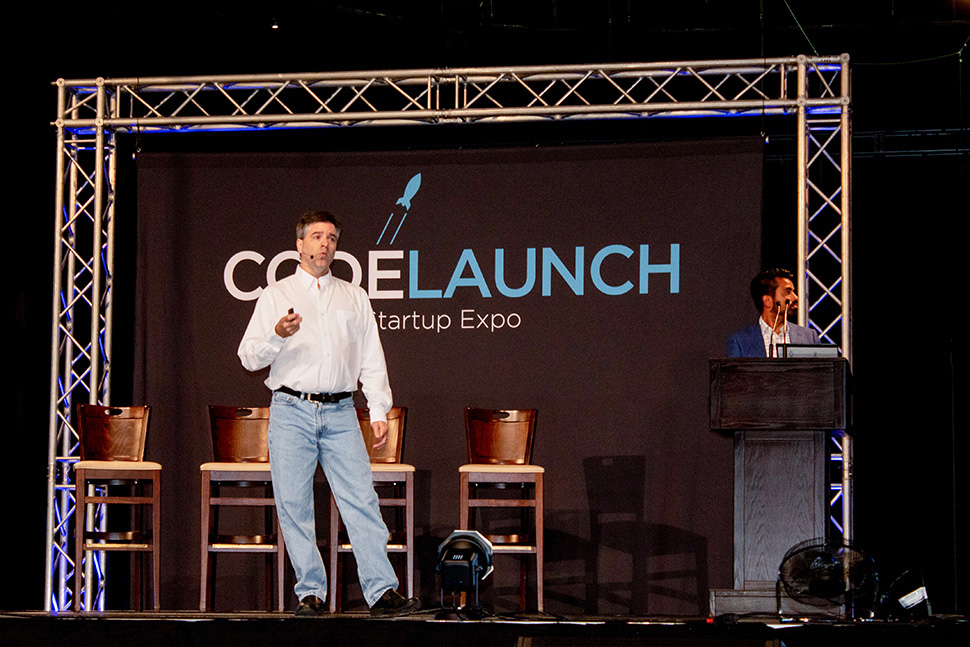
Sonimark CEO Hal Fitzgerald makes his pitch.
GOTSPOT
When Hurricane Harvey hit Houston last year, people were desperate to find space. City leaders needed a place for people, relief goods, and emergency stations, and businesses that were displaced needed a place to set up shop temporarily.
In the aftermath Reda Hicks, a logistics attorney who lived 20 miles from Houston in Humble, Texas, realized that there needed to be an avenue to connect people with spaces. So, she created GotSpot which operates like AirBnB for commercial spaces.
“As an entrepreneur, anything you might possibly need already exists in the local business ecosystem.”
Reda Hicks
GotSpot connects entrepreneurs and business owners with an underutilized space, such as hotels, bars, restaurants, studios, warehouses, workshops, and galleries.
Each time a new spot is onboard, GotSpot asks the spot holder whether that space can be activated in case of emergency. If yes, then that becomes a searchable attribute of that listing.
“As an entrepreneur, anything you might possibly need already exists in the local business ecosystem,” Hicks said. “Spot seekers can find the perfect space for them, book it, capitalize on the opportunity to use the space, and put money into the pocket of the local business.”
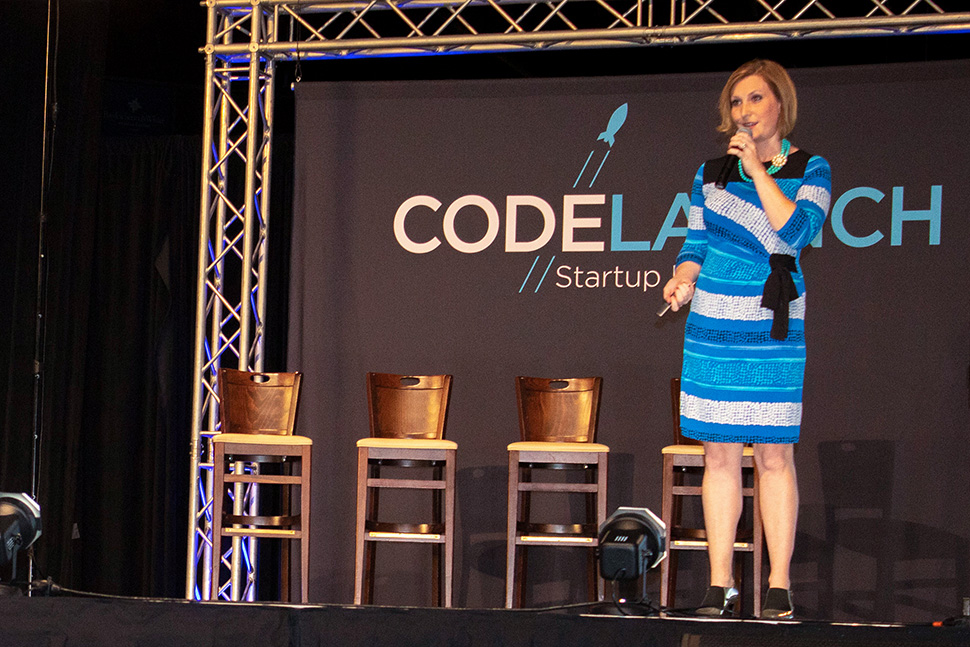
Reda Hicks gives her pitch for GotSpot.
RACEIQ
James Jones, the founder of automotive software engineering firm RaceIQ which won the award for Most Financial Potential, paints a frightening picture for car owners: “Imagine you’re headed out with your family in the car. As you approach an intersection, you try to break, but this time, there’s no response. Now, you think fast and put your car in neutral. You pull the parking brake, but your car still accelerates. You smash head first into oncoming traffic, and none of your airbags deploy. Your car has been hacked.”
At the Atlanta-based startup, Jones and his team are working to make internet-friendly connected cars compatible with software that detects, resolves, and protects, from data hacks and viruses.
“We protect you from your own car.”
James Jones
RaceIQ has created a hardware firewall designed to protect the entire body of the vehicle as well as its control area network or the car’s central nervous system.
When an automaker installs RaceIQ’s module into a vehicle, the manufacturer has the ability to detect a threat and solve for it remotely.
“We’ve all known for some time that criminals are targeting the transportation industry, however, today’s cyber criminals are starting to target consumer vehicles, and at RaceIQ, we’ve built solutions that protect consumer vehicles from cyber crime. We protect you from your own car,” Jones said.
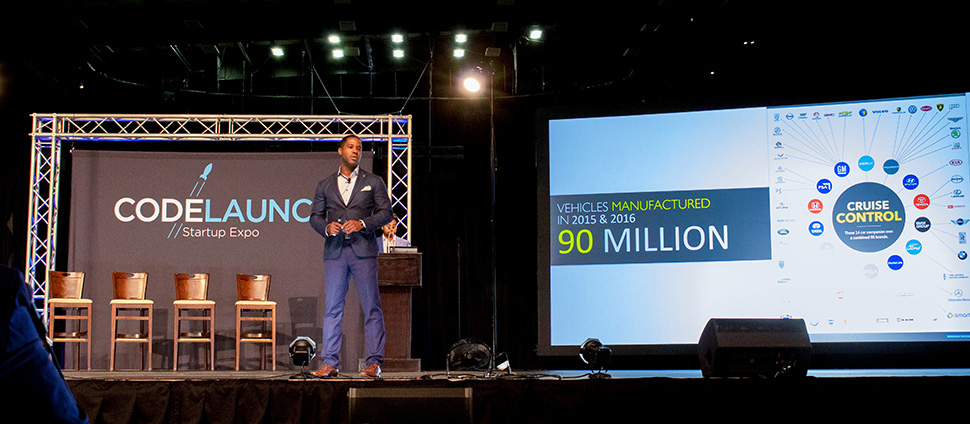
James Jones presents his pitch for RaceIQ.
PHOTO GALLERY
Photos by Yvena Chowdhury.
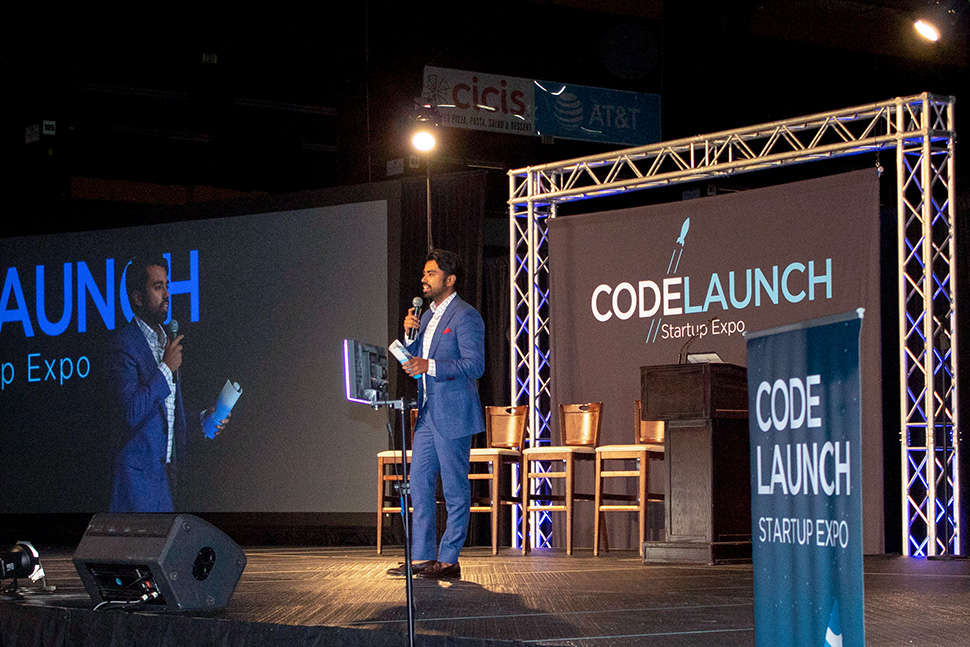
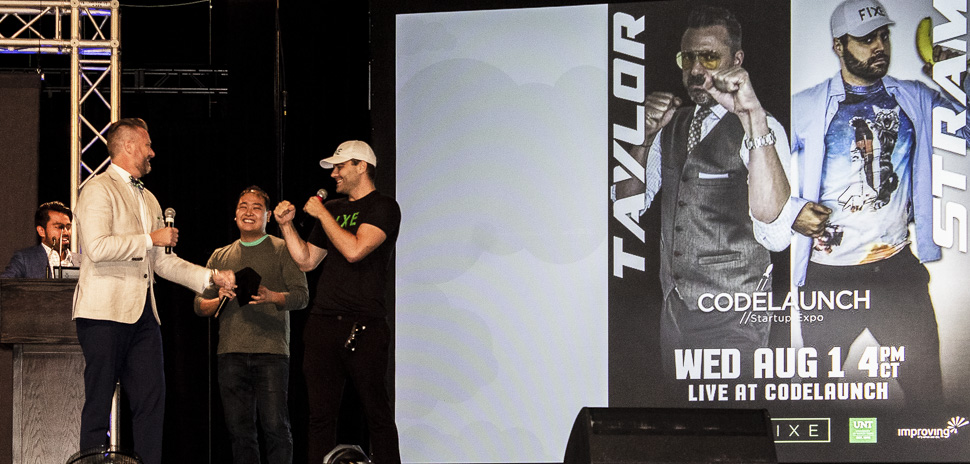
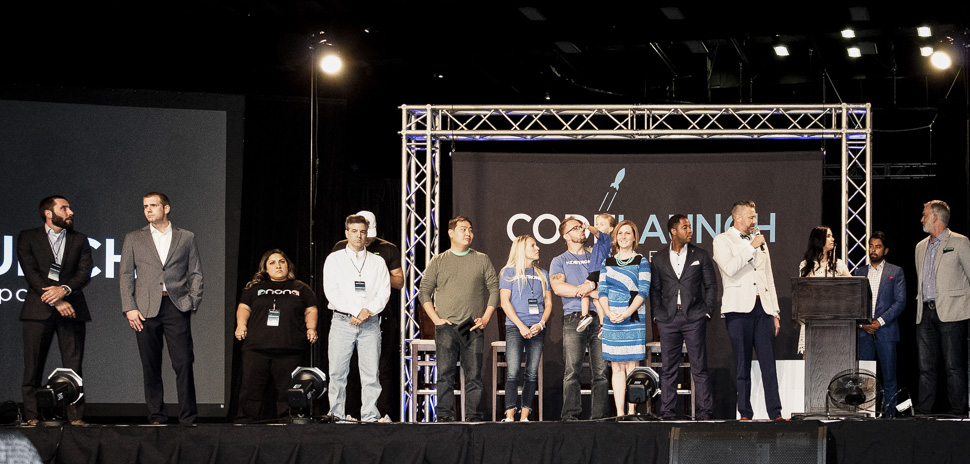
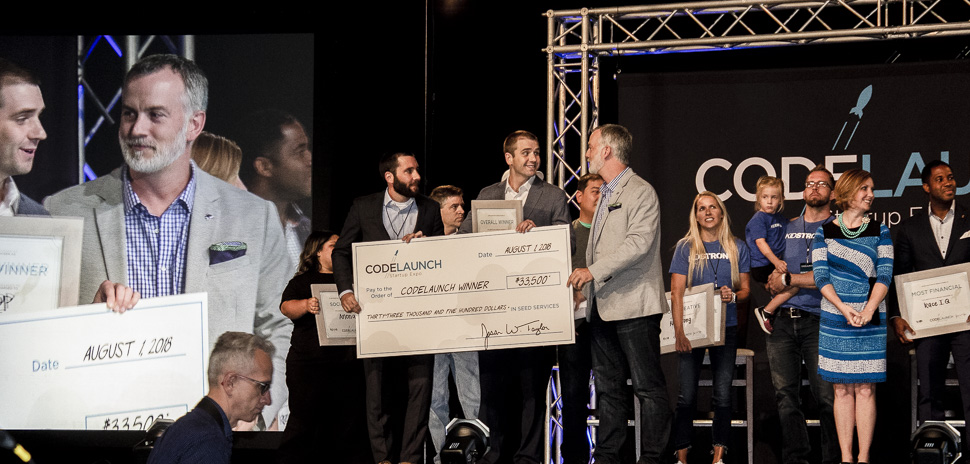
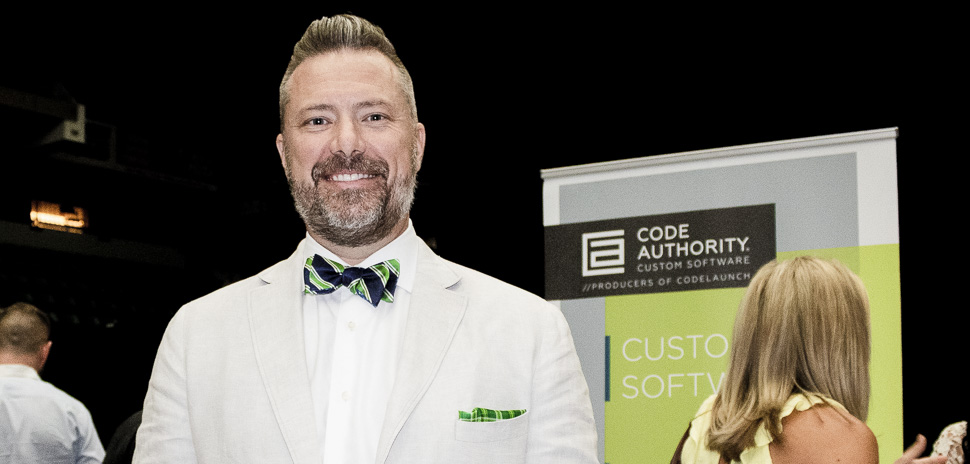
Meredith McGrath contributed to this report.
![]()
Get on the list.
Dallas Innovates, every day.
Sign up to keep your eye on what’s new and next in Dallas-Fort Worth, every day.
![]()

